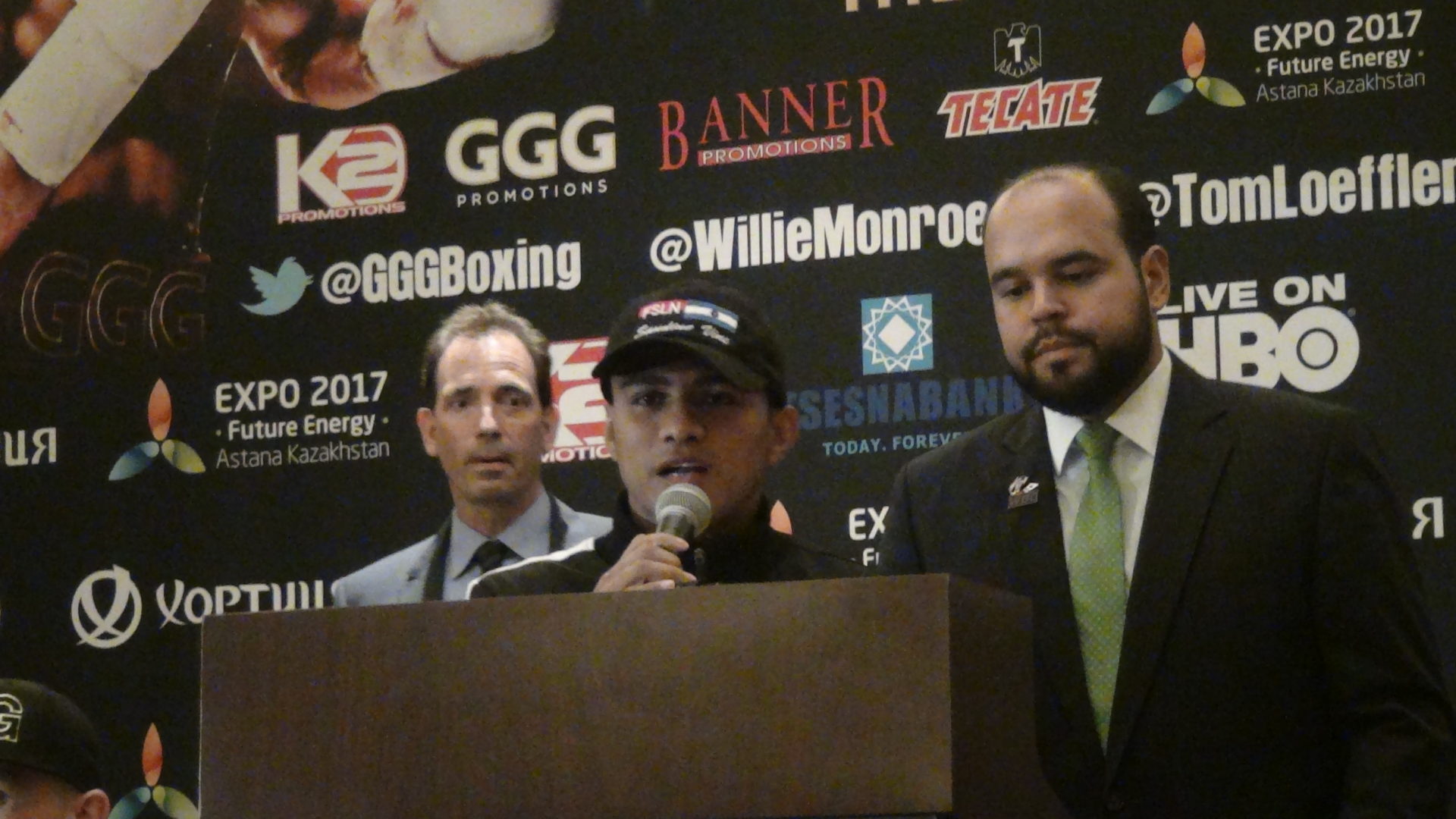Chaotic beauty
By Bart Barry-

“The only way to predict (the result) after a given number of iterations is to actually perform them. This is the ‘hell’ of chaos. There is no shortcut way to predict the future of a chaotic system. Yet it is completely deterministic. If one begins with the same growth rate and start value and does the same number of iterations, the result is always the same.” – Michael McGuire, An Eye for Fractals
Saturday in the co-main event of a Gennady Golovkin fightcard that should not have been on pay-per-view, Nicaraguan master Roman “Chocolatito” Gonzalez defeated by TKO American flyweight Brian “Hawaiian Punch” Viloria. It was, as always, an honor to watch Chocolatito.
There is a joy in seeing Roman Gonzalez ply his craft that serves as a point of personal nostalgia more than glee; it’s a reminder that brings sadness, now, of how much more we cared about prizefighting even five years ago – when there were stakes, when every match wasn’t settled in the contract, when the opening bell rang on a championship match and the promoters and matchmakers and commentators had at least a sprinkle of doubt what might transpire.
Are there upsets today? Supposedly. But they almost universally originate in acts of matchmaking incompetence, which is fairly the opposite of how one supposes they should: Neglecting his homework, a matchmaker imports an unknown commodity from afar and watches in horror as the unknown commodity exceeds expectations, and then reacts in horror as the promoter-friendly judges do not “stay bought” – in Simon Cameron’s memorable phrase. Saturday the favorites on the telecast won at least 90-percent of the rounds, and more than 95-percent of the minutes. Bereft of moments for insight, the commentating crew meandered to its likeliest spot, selfreference and salesy exuberance, violating, as it did, an olden days’ formula that goes: Wisdom = Insights / Words.
But let them not turn you against Chocolatito. Freed from the penitentiary in which Richard Schaefer and Chuck Giampa once held it, “The Ring” magazine ratings panel now recognizes Chocolatito and Andre Ward as, pound-for-pound, the world’s two best fighters, ensuring Gennady Golovkin someday will have to fulfill all those promises we used to hear about his fighting at 168 pounds, if aficionados are to recognize him as the world’s best fighter. Golovkin will not beat Ward, and it’s good to see the ratings panelists recognize that, both conditionally and historically; however many b-level, 8-1 underdogs Golovkin bionically razes, however many junior middleweights abdicate titles to avoid him, however strainedly commentary crews liken his rise to Marvelous Marvin Hagler’s or Manny Pacquiao’s, Golovkin will remain a talented athlete whose supporters looked upon an accumulation of mediocrity and called it great, sometimes absurdly, sometimes soberly, sometimes even with eyes wetted.
It does not behoove Golovkin to continue fighting immediately after Chocolatito; a better promotional programmer would separate them with some heavyweights, a cleansing of the excellence palate, as it were, to make Golovkin look more fluid and faster than he does every time he comes onstage moments after Chocolatito. It is not a talent river forded in the time it takes to sing a national anthem, even if it is America’s, a song somehow far more inflatable than any other country’s; Golovkin looks stiff after a half hour with Chocolatito, and that is not a pointed criticism of Golovkin: he’s simply outmatched the way Golovkin’s opponent was Saturday night.
David Lemieux had power, we were assured relentlessly, and that was the equalizer. In an imaginary match with Chocolatito, Golovkin, we’d be told, has immeasurable power advantages, the sound and ferocity of his punches convincing even the lamest of the laity. One-punch-knockout power, grows the canard, even as Golovkin needs hundreds more punches to stop opponents as his quality of opposition migrates north from level C. Golovkin was technically superior to Lemieux as Chocolatito is technically superior to Golovkin, who does do a number of things very, very well.
Chocolatitio does simply everything very, very well. There is a pure chaos to the combinations Chocolatito throws at an opponent; they are fully sensitive to their starting points, self-referential, and unpredictable. Because he routinely fights men who can hurt him – “every punch hurts me,” Chocolatito said after Saturday’s victory – he throws rebalancing punches more often than Golovkin does (or needs to). Chocolatito has the defensive responsibility of a young Juan Manuel Marquez and the offensive prowess of an old Juan Manuel Marquez and none of the Mexican’s deep contempt.
A perfect combination has no end point, as the old saw has it, because every punch flows frictionlessly to its counterpart: The jab positions the hips for the cross that cocks the lead shoulder for the hook that sets the back hip for an uppercut that places the lead hand for the hook that brings an overhand right that forces an up jab that positions the hips, and so forth. Chocolatito’s conditioning is right, of course, but it is famous because of the mechanical purity of his combinations and how very little energy is lost to the friction of missing and reversing and getting hit in unacceptable ways.
One such unacceptable way was the left hook Viloria landed Saturday in the match’s final round, a punch to the fabled button that frightened Chocolatito with both its instant pain and arriving consequences, and yet, what poise. Chocolatito lowered his right guard, tucked his chin and began to spin and breathe, enduring the misery long as his recovery required. Then he stopped Viloria.
We have yet to see such poise from Golovkin because we have never seen him challenged because, we’re told, he has no equal in the world, man or beast. Such claims are often made. They never survive posterity.
Bart Barry can be reached via Twitter @bartbarry